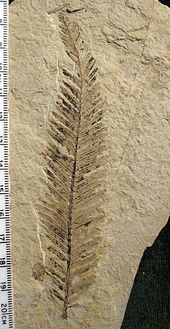Well-meaning people in my life often suggest books they think I would like, or books they feel everyone should read. Perhaps somewhat stubbornly, I rarely take up these suggestions. My reading selections have typically been driven more by whimsy, or by some sense of free will when standing in front of a bookshelf of interesting (and not-so-interesting) choices at the library or a bookstore. I typically read mostly fiction for pleasure and have migrated through various genres in my life. These days, I’m most likely to pick up a novel if it has a lake or an adirondack chair on the cover, or if it features women who knit, or cook, or start a small business in a quirky town, or who overcome adversity and valiantly keep their family strong. (True confession: I’ve never read the “Harry Potter” series and probably never will in spite of everyone’s best efforts. Fantasy books just aren’t my thing.)
In my last blog post, I described how I was going to catch up on some science reading after completing the work of my academic year. This is a deliberate effort to switch things up a bit alongside my fluffy novels. After kicking things off by successfully reading about microbiomes in “I Contain Multitudes,” I decided it was finally time to pick up “Lab Girl,” which many people had recommended to me after it was published last year. I wasn’t enthused about reading this book, mostly because so many people had recommended it, but had put their own spin on it: “It’s a great book, but…it’s about the plight of women in science,” “…it’s sort of depressing,” “…it talks about the sorry state of research careers,” “…it’s why I’m glad I’m not doing science.” With paraphrased and probably poorly remembered reviews like these, coupled with my own reticence to jump on a literary bandwagon, it might not be too hard to see why I had ignored the book for a while. Nevertheless, I recently spotted it on a table in a bookstore where I volunteer and reminded myself I should go ahead and read it as part of my Summer of Science Books. I then mentally steeled myself to engage with what has been billed as an important book about women in science.

Metasequoia occidentalis fossil. By Kevmin (Own work) [GFDL (http://www.gnu.org/copyleft/fdl.html) or CC BY-SA 4.0-3.0-2.5-2.0-1.0 (http://creativecommons.org/licenses/by-sa/4.0-3.0-2.5-2.0-1.0)%5D, via Wikimedia Commons
Everyone has a story.
This is the idea I have been reflecting on since finishing the book. How do scientists get to be who and where they are? What inspired scientists as young people to do the work they do? What helped or hindered them along the way? What systematic barriers remain in science education, training, and employment? But also more broadly: What inspires any person to do the work they do? How does each person navigate through the positive and negative moments and influencing factors in their lives and find a way to exist with purpose, pride, and satisfaction? What of the many people who haven’t had that opportunity and struggle with scenarios that range from the temporarily unfortunate to the unimaginably horrific? Scientists and social scientists address these questions with research about genes, health, environmental impacts, brain chemistry, relationships, and the like. Artists explore the euphoria and the darkness of the human condition. Historians put it all in perspective over time and address the rise and fall of civilizations, including troubling topics such as poverty, racism, wars, and famines. Philosophers muse on all of the above and leave us with more questions than answers.
I have my own science story. At this moment in my life, I work with college students, each of whom is navigating the transition from adolescence into their adult lives, with all the excitement and apprehension that entails. Some will choose a career in science. Many will explore interests and talents elsewhere. From time to time, I engage in science outreach with children and hopefully expand their horizons and options a bit as they, too, navigate their path toward adulthood. I’m also a mother and therefore have played a role in sculpting the first chapters of my own children’s lives. Hope Jahren’s book left me thinking more about the balance of finding, following, and sharing our passions and talents alongside the mundane and confounding aspects of being a human in the 21st century, and where the vocation of science fits in our society.
As it turns out, it was exactly the kind of book I needed this summer. My friends were right. Thank you. But I’m still not picking up “Harry Potter” quite yet.
Pingback: A story about…science? | Mulled Science
Pingback: February science connections | Mulled Science
Pingback: Endings and new beginnings: Books, science, and life | Mulled Science